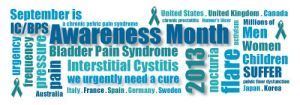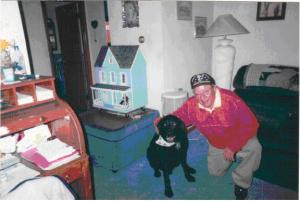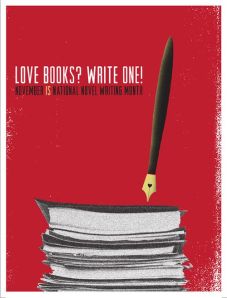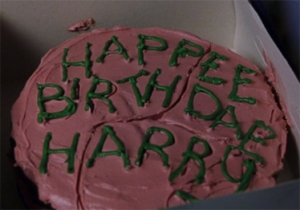
by Stacey Anter
The Library Detective
September is Interstitial Cystitis Awareness Month and I would like to share with you what I have learned from my friend Roxanne Beretta. Roxanne is a Lifetime Member at Weight Watchers and, until recent cutbacks, she was also a Weight Watchers employee. She is quite an inspiration, not only for her weight loss success story, but also for her courage and strength in living with IC. Here is an interview I had with Roxanne, and I thought I would just share her words with you instead of trying to sum it all up because I think it is important to know about her weight loss journey as well as her IC story.
Stacey: What made you join Weight Watchers?
Roxanne: I joined Weight Watchers on January 4, 2001. I had been carrying around an extra 25 lbs before I had my son, in August 2000, so by January 2001, I was carrying an extra 50! I had had enough so I wanted to learn to eat right and lose it – for good.
Stacey: How much weight have you lost and how did you do it?
Roxanne: I lost 55 lbs. (although currently it stands @ 50) eating healthy meals and making better choices for snacks.
Stacey: When did you start working for Weight Watchers?
Roxanne: I began working for Weight Watchers in October 2002. I had reached my Goal weight in September of 2001, and became a Lifetime Member. Weight Watchers then contacted me a year later and asked if I’d be interested in working for them.
Stacey: How do you keep your weight off?
Roxanne: I keep my weight off by continuing to eat healthy meals, and exercising. *Having IC forces me to do both as well*
Stacey: What struggles have you experienced in your weight loss journey?
Roxanne: I have struggled a little bit over the past ten years. In 2003, I began to gain some weight back and struggled to find my motivation. When I became pregnant in 2004, I had re-gained 13lbs. I then dealt with a miscarriage, and a roller coaster of emotions for the next few months. In January 2005, I had to re-focus and re-group if I wanted to stay employed; so I lost 20lbs.
Stacey: What do you usually do for exercise and how much?
Roxanne: I was always a walker and used my gym frequently before marriage/motherhood. However, when I joined WW in January 2001, I began walking on my treadmill 3 days per week for a half hour at a time. My son was an infant (5 months) so I had to squeeze in exercise when I could. That spring, I began walking him in his stroller on the bike path and would walk every day – sometimes twice a day for ½ hour – 1 hour. When I re-gained weight and had to re-lose it in 2005, I increased my walking intensity (added hills to my routes) and revisited my gym. I used the elliptical and weight machines about 2 times per week. Then in October 2006, when my new treadmill arrived, I decided to run. It was tough at first, and I only focused on running 2 minutes at a time. By December, I was running 3 miles! I felt I had finally found something I could do at my own pace, in my own time, and pretty inexpensively. I was hooked. From 2007-2011 I was running 5 days per week for 5 miles (or more) per day. I also did the elliptical 2 days per week and weight trained for 3 days. I kept that up until my knee injury/surgery in December 2011.
Stacey: How many 5Ks have you done? When did you start doing them?
Roxanne: I ran my first 5k in September 2008. I had set that as a goal on New Year’s Eve. I began training myself to run outdoors (instead of on a treadmill) in April 2008 while on vacation in Florida. There was no treadmill or access to any exercise equipment; so I just laced up my sneakers and hit the road. However, when I returned home, it was a very rainy spring and summer, so I wasn’t able to run outside very often. The Thursday before the 5k (CVS Downtown 5k) I ran 4 miles outside, so I felt (and hoped) I was ready! I ran the 5k that Sunday in 29:22 and was very pleased with my time. I loved the energy of the crowd and the feeling of accomplishment at the finish line. I was determined to do that again!
Stacey: How did Pavement Pounders come about?
Roxanne: However, in March 2009, I was battling something – I didn’t know what exactly, but my Gynecologist was referring me to an Urologist for testing. So while I battled that, I kept putting off doing a 5k until I felt I could. But as the months wore on, I realized I just had to try it whether I felt up to it or not. So I signed up for the Rhody 5k in June 2009. I didn’t know if I could make it or not, but I gave it my all. I did finish the race and my bladder held up, and the pain was manageable, so I felt great. A week later, I ran the Gaspee 5k and managed to push through the pain. I underwent a cystoscopy in July 2009, which indicated I might have Interstitial Cystitis (IC for short). I would have to undergo a hydro distention at Women & Infants in November for it to be diagnosed. It was, on November 9, 2009. I ran my next 5ks in August & September 2009 (the CVS again) then recruited Susan Costello to join me for the Gloria Gemma 5k in October. Together we did it, along with about 12 people from Weight Watchers (members). We decided to form a team and name it “Pavement Pounders”. I chose the name because it represented us – we pound the pavement, and the pound also represents the pounds lost! Our next 5k was the Jingle Bell 5k at Roger Williams Park in December 2009. It was less than a month after my surgery and diagnosis; and we had a team of 87 join us! I have personally run [well over] 23 road races, and the Team has participated in [more than] 28.
Stacey: When were you first diagnosed with IC?
Roxanne: Monday, November 9, 2009.
Stacey: Could you please explain what exactly is Interstitial Cystitis? What happens to you?
Roxanne: Interstitial Cystitis (IC) is a bladder disease that affects both men and women. Women are four times more likely to get it than men. It affects any age, race, religion. I was diagnosed at the age of 42. Most women are diagnosed between the ages of 24-35. I always had frequency issues as far back as 6th grade. I knew I urinated more than anyone else my age; as I was the one who had permission to just go to the bathroom whenever I needed to in school, without a hall pass. Symptoms vary from person to person. Most deal with frequent urination, urgency, burning urination, blood in urine, pelvic pain, vaginal pain (ie like stabbing), swollen abdomen, fatigue, lower back pain. I deal with all of those, but my issue is mostly the frequency, burning and pelvic pain. I am affected every day. I only had one symptom free day since being diagnosed. It was June 22, 2010. When I awake each day, the first thing I feel is the pelvic pain. Kind of like cramps, or aches in my stomach, hips, lower back and pubic area. Some days it’s noticeable others it’s unbearable. Food and emotions are triggers for me. Once I get out of bed, I urinate, usually it burns; I eat breakfast which is always an egg w/ American cheese and 1 slice of gluten free ham. I do not have any other breakfast options that are IC friendly for me. So I’ve eaten this same breakfast for 3 years. I usually urinate anywhere between 16-28 times per day, on a “good” day. If I am in a flare, it can be as many as 50 times per day. What happens with an IC patient is our bladder lining is deteriorated. The lining in a normal person’s bladder is what prevents acid from hitting the bladder wall. In an IC patient, the lining is gone, or has holes in it, which lets acid hit the bladder wall, which then causes irritation and histamines. There’s when the pain begins and the frequency starts. If, for example, I were to eat a food that isn’t IC friendly, it can cause my bladder to spasm, and the results will be pelvic pain, frequent urination, burning, bleeding. It can last for hours to weeks. Nothing coats the bladder (like Pepto Bismol coats the stomach); so we are stuck trying to deal with it. There is an IC Diet List on the ICN.Network; which is what we are usually first given by a doctor. On it is a three column listing: Bladder Friendly Foods, Ok to Try Foods, and Caution Foods. What happens is, a patient must do an elimination diet. When I was going through the diagnosis process in the spring of 2009, I only ate foods that were listed on the Bladder Friendly column — One food at a time. So I ate an egg for breakfast, for lunch, and for dinner, for 3 days. If I didn’t flare, I knew it was an ok food for me. It is very time consuming and unrealistic. Most of us give up on it and just try to figure out what our trigger foods are. We know enough to avoid caffeine, acidic foods, chocolate, and alcohol. I only eat a bland diet. Things like black pepper, condiments, fruit, are off limits. I cannot eat many foods due to having Gluten intolerance too (Celiac) so my IC Friendly Food List is extremely short. I eat the same lunch: lettuce, cukes, egg, cottage cheese w/ chicken breast. Sometimes I can change it up (pork, beef etc.) and dinner is always a challenge too. I have not gone out to eat in over a year. Doing so requires a lot of planning and asking a lot of questions.
Stacey: How do you manage the pain of IC?
Roxanne: Managing IC pain is a challenge as well. It all comes down to reducing the stress in life, and watching food intake. Advil can help with the pelvic pain. I use a heating pad for my spasms. [At the time,] there [was] only one medication for IC patients – it’s called Elmiron. I was given a prescription in Nov 2009 but never took it because of the side effects. I felt I had frequency issues more so than pain (which is what Elmiron is for) so I never started it. I prefer to try natural methods. I tried something called Cystoprotek, and Desert Harvet Aloe – both are natural pills that are supposed to help with symptoms. Neither worked for me. They increased my frequency and burning. Many of these types of products do, because they contain soy, or another bladder irritant. Doctors often prescribe pelvic floor therapy. I went to 3 sessions in 2010 and my insurance didn’t cover it, so I received a bill for $735.00. Needless to say, I never continued it.
Stacey: How do you keep up your exercise routine having IC?
Roxanne: Which leads me to my real pain management technique: Exercise. I know that many IC patients can no longer exercise due to the pain and frequency. However, I refuse to give up. My Doctor and I both agreed early on that I would continue to run and do whatever felt good while I still can. He was not so supportive in the very beginning, but then he realized that I was able to run through the pain without causing any additional damage to my bladder. He said once you have IC, you really can’t make it worse. Only if you drink excessively, eat all the wrong foods, etc. but that exercise wouldn’t harm my bladder lining. So I manage my pain best when I’m active. I love to exercise so in order to be able to do it, I am forced to eat right, sleep when I need to and drink enough water. (Water is very important to an IC patient – we must drink to keep our bladders “healthy” – so I always run with a little water bottle). There have been days when exercise is impossible. (this week has been like that). I usually try to fit it in first thing in the morning, but since spring 2011, I haven’t been able to, so I try to fit exercise in when I can. I always hope for a better tomorrow. I have been able to ride a bike again (3 weeks now) so I do that when I feel up to it.
Stacey: What do you do when you have an IC flare up?
Roxanne: When I have an IC Flare it is always different and unpredictable. I have had situations where I’ve been stuck somewhere. (ie last summer I went into a flare at my physical therapy appointment in Providence after riding the recumbent bike for 10 minutes). I had to stay there while I went through it (very embarrassing, but the people there were so nice!) I had to pee every three-five minutes, and I was doubled over in pain. They let me use the bathroom all night and placed a heated pad on my tummy. My appointment was at 6:00pm (flare began at 6:15) and I couldn’t leave until 9:15pm. I couldn’t leave the building because I had to keep peeing. I couldn’t drive because of the pain. It was awful. I’ve only had about 6 flares that bad – where I was out somewhere in public. Otherwise they happen at home. Last summer I ate cherries (they were listed on the Ok to try list) and I bled and had urgency/pressure on my bladder for 12 days. When I tried honeydew melon last September I was in severe pelvic pain for 4 days. Once I rode my bike in my neighborhood and when I finished, I had severe pain in my back, stomach, vaginal area for a full week. So each flare is different. The main thing is, it’s a total nuisance and unpredictable. As an IC patient you learn you cannot plan anything or think you’ll do that “tomorrow”. There’s no putting anything off if you’re ok – in other words, if I feel good right now, I’d better run, because I may not be able to tomorrow.
Stacey: What is the most important thing that you would like readers to know about you, WW, or IC?
Roxanne: I guess I want people to know that even though IC can be challenging; I’m lucky that I worked for a company like Weight Watchers, which required me to work very short hours at a time. I have yet to find another job that would allow me that. I miss working full time and having a “profession”, but having IC and working with the public has enabled me to meet many nice people whose lives have not only touched mine, but that I have touched theirs. I don’t think I would be handing IC too well if I hadn’t had a weight-loss journey first. I think I realized through that, that I am strong when I have to be. I have learned to find my inner strengths and utilize them. I have many weaknesses and that can be pretty humbling, but I think that having IC has made me more sympathetic to people. We all have some sort of challenge. – Losing weight has made me aware that some things can be changed, others can only be managed. I will not give up (although some days I really want to).
Roxanne is an inspiration to anyone who suffers from chronic pain. I suffer from chronic daily headaches and migraines, and I personally know that when you have chronic pain of any kind, you are afraid to exercise for fear of increasing the pain to a debilitating level. Roxanne has proved that exercise may actually help the pain, at least for a little while. Of course, if the pain does worsen, it’s time to take a short break, and that’s okay.
Here are some resources that you can check out for more information on Interstitial Cystitis: The Interstitial Cystitis Survival Guide: Your Guide to the Latest Treatment Options and Coping Strategies by Robert M. Moldwin; The Better Bladder Book: A Holistic Approach to Healing Interstitial Cystitis and Chronic Pelvic Pain by Wendy Cohan; Along the Healing Path: Recovering From Interstitial Cystitis by Catherine M. Simone; Overcoming Bladder Disorders: Compassionate, Authoritative Medical and Self-Help Solutions For Incontinence, Cystitis, Interstitial Cystitis, Prostate Problems, and Bladder Cancer by Rebecca Chalker and Kristene E. Whitmore. Naturally, you can visit the IC Awareness website, www.icawareness.org , IC Help website www.ichelp.org , and the IC Network www.ic-network.com.
I call myself the Library Detective because I can find the answers to any question you can think of, or at least I can point you in the right direction. To find out more about Interstitial Cystitis or chronic pain visit your local library; there are more Library Detectives there, too.










